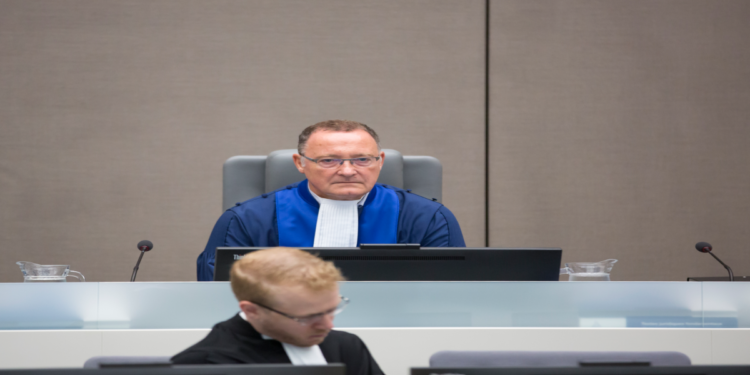By Susan Kendi
Dominic Ongwen’s lawyers will not be allowed to appeal a judge’s decision allowing the identity of an informant used by the prosecution to remain hidden.
Bertram Schmitt, sitting as Single Judge of Trial Chamber IX of the International Criminal Court, previously ruled that the informant’s identity could be revealed but reversed it when the Uganda government invoked a provision of the Rome Statute about protecting national security. On June 1, 2018, the Chamber modified its prior rulings on the issue of the informant’s identity, in response to an assertion of national security interests by the government of Uganda.
Article 72 (4) of the Rome Statute provides that, “If a state learns that information or documents of the state are being, or are likely to be, disclosed at any stage of the proceedings, and it is of the opinion that disclosure would prejudice its national security interests, that state shall have the right to intervene in order to obtain resolution of the issue in accordance with this article.”
Judge Schmitt’s June 26, 2018 decision puts to an end the defence quest to reveal the identity of the informant the Ugandan government used to ask Joseph Kony about his deputy Vincent Otti’s death. Ongwen’s lawyers have been battling to unseal the identity of the informant since January this year.
Schmitt, sitting as Single Judge, observed that Otti was reported dead in 2007, two years outside the time period charged in the Ongwen case, and there is nothing that presumes that Ongwen had a hand in it. He ruled out the possibility of using the informant’s identity as part of Ongwen’s defence that he was under duress.
Ongwen’s lawyers wanted to challenge the change Judge Schmitt made on his earlier rulings arguing that he had made a legal error. They also wanted to argue that the judge’s application of a standard of “relevance” departed from established jurisprudence and wanted to question whether or not he could draw inferences regarding relevance without inspecting the material itself. The lawyers also wanted to challenge the Judge’s decision under Article 72(5) of the Statute without evaluating the accuracy of the asserted national security prejudice.
Judge Schmitt said his decision as it is based on two findings: the informant’s identity was not material to the preparation of the defence, and even if it was, restrictions for disclosure are in place.
The judge said he did not know the informant’s identity, and there was no information on the record to suggest that the person is a witness in the Ongwen case. “This issue does not affect the fair and expeditious conduct of the proceedings or the outcome of the trial,” the judge said in his ruling.
Judge Schmitt said Kony’s implicit threats of lethal violence over his subordinates had already been admitted in the trial. He observed that the “prosecution’s proposed stipulation meant that no defence need be prepared towards establishing Joseph Kony’s implicit threats of lethal violence over his subordinates.”
The judge said the disclosure of the informant’s identity had been ordered not because [it] was deemed material to the preparation of the defence, but as a remedy to an information and evidence management failure by the prosecution. Before the filing by the Government of Uganda, Judge Schmitt had concluded that there were no substantive reasons as to restrict the non-disclosure of the informant’s identity had been substantiated.







